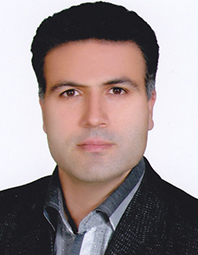Designing and Validating a Family based Mental Empowerment Program for Improvement of Cognitive Processes, Psychological Hardiness and Academic Performance of slow learners’ students
The study reported in this paper aimed at developing and validating a family-based mental empowerment program to enhance cognitive processes, psychological hardiness, and academic performance of slow learners. The present study was fundamental in nature. The statistical population included psychologists and exceptional children's education specialists, family education instructors, and parents of slow learners in Tehran. The sample population consisted of three professors in psychology and exceptional children's education from the University of Tehran, three family education instructors, and three mothers of slow learners, selected through purposive sampling. The validation process of the studied program was carried out in five steps (reviewing theoretical foundations, reviewing previous research and existing programs, developing program content, validating the content, and explaining the program validation). The Delphi method was used for program content development, triangulation and Lawshe's content validity index were employed for content validity determination, and the expert agreement percentage method was used for determining the program’s reliability. The overall content validity coefficient of the sessions stood at 85%, and the program’s reliability coefficient was 86%. The family-based mental empowerment program aimed at enhancing cognitive processes, psychological hardiness, and academic performance of slow learners demonstrated high validity and reliability. Therefore, this program can be used to improve the cognitive and academic status of slow learners.
-
Comparing the Effectiveness of Two Intervention Methods Based on Education with Music Software and Visual Communication on Stereotyped Movements and Hand-Eye Coordination in Children with Autism
Azadeh Talebi, Leila Kashani Vahid Kashani Vahid *, Maryam Asase, , Manouchehr Moradi Sabzevar
Journal of Applied Psycology Research, Summer 2025 -
A Psychological Approach to Human Transcendence: A Case Study of Muhammad's Ascension to Heaven
Bagher Ghobari-Bonab, Fatemeh Sahebdel, Saeid Zandi*
The International Journal of Humanities, 2025 -
Analysis of number sense on working memory profile in students with Math learning disorder
Aliakbar Arjmandnia, Fatemeh Mojaver*, Shirin Mojaver
Journal of Exceptional Children, Winter 2025 -
Effectiveness executive function training program using augmented reality on Communication skills in children with high-functioning autism spectrum disorder
Shirin Mojaver, Aliakbar Arjmandnia*, Mohsen Shokoohi Yekta, , Fatemeh Jafarkhani
shenakht Journal of Psychology and Psychiatry, -
Psychometric Properties of Spouse Selection Tools in Iran: A Systematic Review
Mahdie Sadat Nayeri, Keyvan Salehi *, Saeed Akbari Zardkhane, Gholamali Afrouz
Strategic Studies On Youth and Sports, Autumn 2024 -
Presenting a conceptual model for identifying effective factors in students' talent identification (Meta Synthesis Approach)
Parinaz Rahmani Barouji, Mitra Ezati*, Javad Pourkarimi, Aliakbar Arjmandnia
Managing Education in Organizations, -
Design and Validation of Intervention Pattern of Underlying Reading Skills and its Impact on Reading Skills of Students at Risk for Reading Problems
Mohammad Ghasemi Arganeh, Fatemeh Nikkhoo *, Majed Ferouzkoohi Berenjabadi, garosi
Educational Psychology, -
Effectiveness of Hydrotherapy on Communication Skills of Children with Autism Spectrum Disorder: A Single Case Study
garosi*, Aliakbar Arjmandnia, Alireza Mohseni Ezhei, Mostafa Asgari
Quarterly Journal of Child Mental Health,






